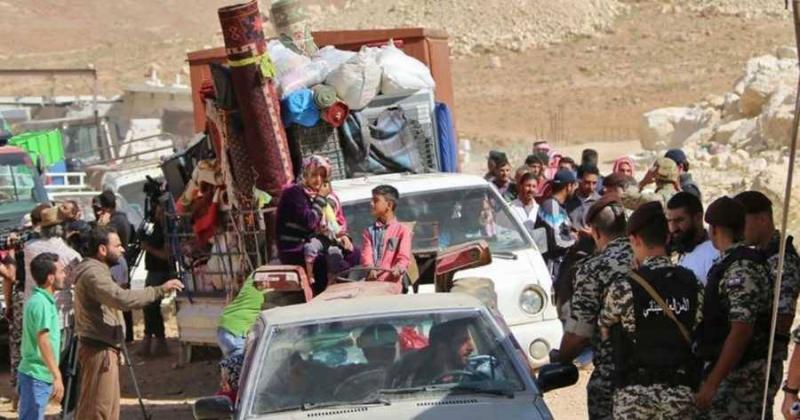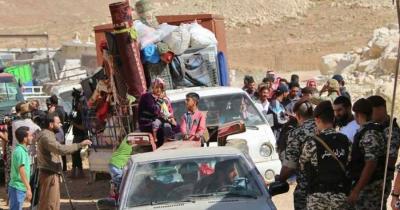The issue of displaced Syrians has returned to the forefront of the Lebanese scene following the murders of Pascal Suleiman in Jbeil and Yasser Al-Kokash in Al-Azouniyeh - Aley. Despite the announcement of an official plan that was said to be revealed in late April, no ready and comprehensive proposal has been announced yet. The circulating Lebanese official proposal involves the deportation of Syrian prisoners from Lebanese prisons, with multiple meetings held at the government headquarters regarding this issue and the assignment of Acting General Director of General Security, Major General Elias Bechara, to the file. Information has surfaced regarding a phone call made by President Najib Mikati to his Syrian counterpart Hussein Arnous last week. What is Damascus' position on the recent Lebanese turmoil? Will it be cooperative with Lebanon?
Informed sources told MTV that "Syria is waiting for Lebanon to present its proposal officially. The issue of displaced people requires a joint resolution between Lebanon and Syria and an agreement on several points, based on the proposals that Lebanon will present. However, nothing official has been announced so far." The sources confirmed that "there is a Syrian openness to dialogue. A Lebanese delegation previously visited Damascus, headed by Foreign Minister Abdullah Bou Habib. The Syrians are open and ready to discuss details and have no issues, in fact, they welcome the return of all displaced people and are in need of them, having stated this multiple times," adding, "All relevant officials who visited Syria heard this."
"Syria has taken all measures to facilitate returns, and this was previously confirmed with Major General Abbas Ibrahim," the sources reminded, "but discussions should include the United States, the European Union, and the UNHCR to reach a format that facilitates the return of the displaced." They added, "Americans and Europeans are obstructing the return, and the matter should be clarified with them concerning the main points."
While the sources indicated that "there are conditions and circumstances that must be completed to facilitate the return," they commented on the proposition of deporting Syrian prisoners and detainees, stating: "Lebanon must present a legal vision to the Syrian side, investigating the legal status of the prisoners and the legal provisions, and based on that, a decision should be made to request Syria to take these prisoners back. However, they must be legally classified first between convicts, detainees, and arrested individuals." They noted that many are deported daily by the judiciary, and the Syrian side has no objection and always accepts them. Thus, the Lebanese state must prepare its official working paper and discuss it with Syria.
It is also worth mentioning that there is diplomatic representation between Lebanon and Syria, alongside treaties and agreements such as the 1951 Agreement or the Treaty of Brotherhood, Cooperation, and Coordination in 1991. This treaty is naturally in effect and includes several clauses related to cooperation between the two countries in various fields, and it has been ratified by both Lebanese and Syrian parliaments and is in force, with all agreements stemming from it also in effect.
In this context, the sources recalled an agreement to transfer convicts signed by the Lebanese and Syrian ministers of justice during President Saad Hariri's visit to Syria in 2010, under then-Minister of Justice Ibrahim Najjar, who played a crucial role in drafting it. However, it was never ratified by both the Lebanese and Syrian sides due to the outbreak of war in Syria, making it non-effectual.
Several channels may assist in resolving the issue of the displaced, through the embassies or the General Secretariat of the Lebanese-Syrian Higher Council, or presumably a "military line" through Major General Elias Bechara. The legal format is still under discussion, and the sources concluded by reminding that "the issue was previously raised, and the Syrian side did not oppose it at that time and requested a suitable legal vision since the 2010 agreement has yet to be formalized."




